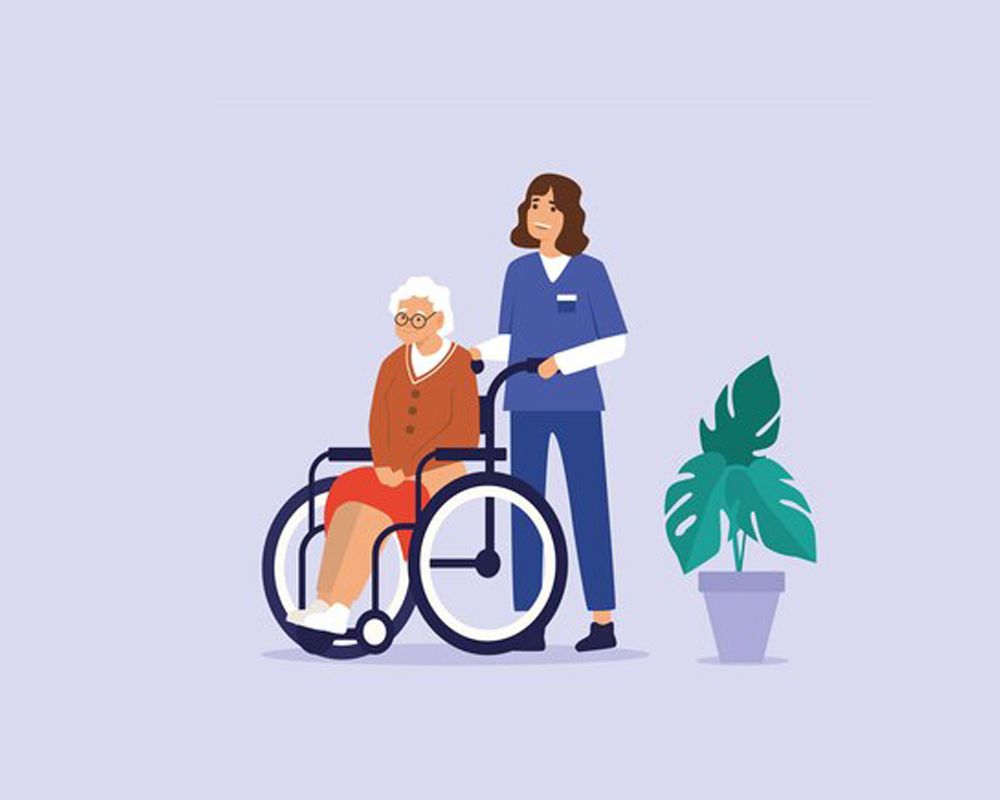Alzheimer’s Disease And Home Safety Tips
Alzheimer’s patients are still able to remain at home, but it does require basic safety measures and a skilled and understanding caregiver. This will provide the person with Alzheimer’s disease the freedom to live at home, and it will give the family members comfort knowing that their loved one won’t be in danger.
What Effects Does Alzheimer’s Disease Have on Safety?
A person with Alzheimer’s disease has a wide range of changes in their body and mind, which frequently endanger their safety and well-being. The disease’s stage determines how severe its effects will be. These safety risks include, among others:
- Judgment: People with Alzheimer’s disease may lose their memory of how to operate common household items.
- Feel of place and time: With this condition, it’s possible to lose sense of time and place, even in familiar surroundings.
- Behavior: People with Alzheimer’s disease frequently experience changes in their behavior such as confusion, fear, and distrust.
- Ability to move: People with Alzheimer’s disease may also experience balance issues.
- Sensations: Issues with hearing, vision, or changes in temperature sensitivity or depth perception can all pose risks to a person’s safety.
Don’t Miss: 10 Ways Of Dealing With Seniors With Dementia Hallucinations
Tips for Home Safety
Here are some suggestions to make a person with Alzheimer’s disease’s home safer if you are their caregiver:
- Examine the house and the region around it. People who have Alzheimer’s disease may be in danger if they enter particular rooms or go outside. Because these could provide a risk to kids, it is crucial to pay attention to garages, basements, and other exterior spaces where equipment, chemicals, or cleaning supplies are kept.
Previous Post: 5 Indicators That Your Loved One Could Be at Risk of Falling
- Getting rid of kitchen hazards Install a concealed gas valve: A circuit breaker on the stove, or use products with an automatic shut-off mechanism to prevent someone with Alzheimer’s disease from turning on the stove. Remove decorative fruits, artificial sweeteners, and seasonings from tables and counters as well.
- Always be ready for emergencies: You should always have the phone numbers and addresses of your local police and fire departments, as well as hospitals and poison control hotlines, readily available. A list of these should always be close at hand so you can act promptly in an emergency.
- Make sure all safety equipment is operational: Make that the carbon monoxide and smoke detectors are operational at all times. Additionally, it’s crucial to have easy access to or keep a fire extinguisher on hand.
- Install locks out of sight: Alzheimer’s patients occasionally leave the house unattended. Install deadbolts in places where they can’t easily access them to stop this from happening. To avoid someone getting locked inside, it is also advisable to remove locks from bedrooms.
- Make sure paths are well-lit: To lower the chance of accidents and disorientation, add more lighting to stairways, bedrooms, doors, and other areas that could benefit from proper illumination.
- Remove all firearms and other weapons from the area: A avoidable risk exists when a person with Alzheimer’s disease lives in a home with a weapon. It’s possible that they’ll think you’re an intruder or someone who wants to hurt them.
- Keep prescriptions locked away: To prevent the potential of an overdose. Use a pill box organizer or daily list to mark each medication off to confirm that it is being taken as directed.
- Reduce or eliminate trip hazards: Clear the clutter from the floor to avoid tripping hazards.
- Avoid bathroom accidents: Elderly people frequently suffer falls, which is especially true for people with Alzheimer’s disease who may have balance problems. As a result, adding grab bars to a shower or bathtub or creating a walk-in shower could be quite beneficial. You may decide to fully remove the rugs or apply glue to help them stay in place. If you don’t have a rug, make sure to cover slick surfaces with textured stickers.
The ultimate objective is to promote independence while maintaining home safety
Social connection should be promoted and there shouldn’t be too much restriction in the home. Make sure these safety precautions are done to assist your loved one enjoy the comfort of home without the risk of harmful dangers because living at home could be very useful.
Also Read: How To Care After A Parent With Diabetes (Full Guide)
Support to Preserve You or a Loved One’s Independence
At Kay Daily Care, We are aware of the value of maintaining one’s independence as well as the challenges associated with caring for an elderly parent or other loved one who may be suffering from Alzheimer’s disease. We are available to provide the care and assistance you or a loved one needs to continue to live freely at home. Our highly trained caregivers are thoroughly vetted by background and reference checks, and it has been demonstrated that they provide the greatest service in the sector.
A section of Kay Daily Care called Stay In-Home Care Support provides companion care support services like pet care, conversation, meal preparation, light housekeeping, and transportation. Additionally, our staff offers personal care services such as eating, washing, and dressing, assistance with medication, and exercise. We keep an eye on home security for people with dementia and Alzheimer’s disease, give mentally stimulating activities, friendship, and round-the-clock care.
Your beloved does not need to give up their independence. To learn more about our services and how we can assist you and your loved one promote home safety, contact us at (215) 939-3292 right away.

